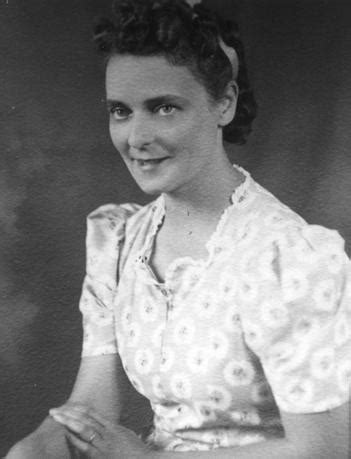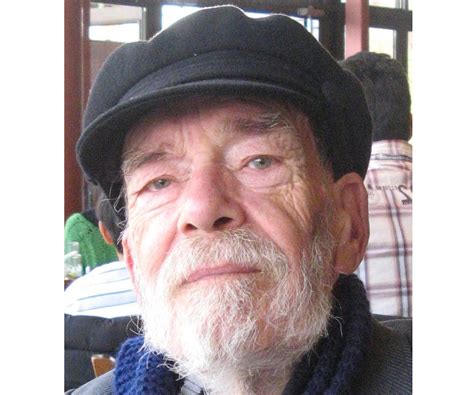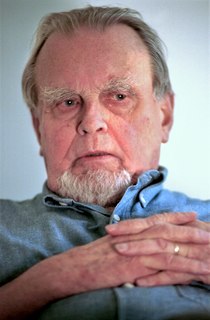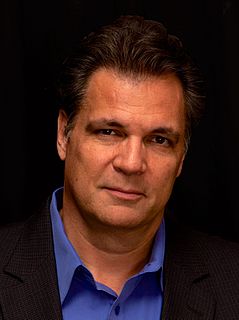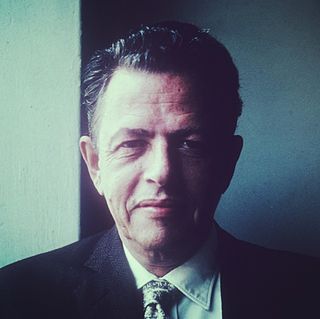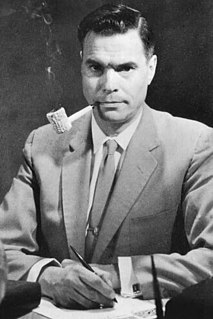Top 475 Cowardice Quotes & Sayings - Page 8
Explore popular Cowardice quotes.
Last updated on November 21, 2024.
Children who wish to become good and great men or good and noble women, should try to know well all the people whom they meet. Thus they will find that there is no one who has not much of good; and when they see some great folly, or some meanness, or some cowardice, or some fault or weakness in another person, they should examine themselves carefully. Then they will see that, perhaps, they too have some of the same fault in themselves - although perhaps it does not come out in the same way - and then they must try to conquer that fault.
But, if we explore the literature of Heroism, we shall quickly come to Plutarch, who is its Doctor and historian. To him we owe the Brasidas, the Dion, the Epaminodas, the Scipio of old, and I must think we are more deeply indebted to him than to all the ancient writers. Each of his "Lives" is a refutation to the despondency and cowardice of our religious and political theorists. A wild courage, a Stoicism not of the schools, but of the blood, shines in every anecdote, and had given that book immense fame.
However long the horror continued, one must not get to the stage of refusing to think about it. To shrink from direct pain was bad enough, but to shrink from vicarious pain was the ultimate cowardice. And whereas to conceal direct pain was a virtue, to conceal vicarious pain was a sin. Only by feeling it to the utmost, and by expressing it, could the rest of the world help to heal the injury which had caused it. Money, food, clothing, shelter - people could give all these and still it would not be enough; it would not absolve them from paying also, in full, the imponderable tribute of grief.
One night when my longing for her was like a fire burning out of control in my heart and my head, I wrote her a letter that just seemed to go on and on. I poured out my whole heart in it, never looking back to see what I'd said because I was afraid cowardice would make me stop. I didn't stop, and when a voice in my head clamored that it would be madness to mail such a letter, that I would be giving her my naked heart to hold in her hand, I ignored it with a child's breathless disregard of the consequences.
Cowardice asks the question, is it safe? Expediency asks the question, is it politic? Vanity asks the question, is it popular? But conscience asks the question, is it right? And there comes a time when one must take a position that is neither safe, nor politic, nor popular, but one must take it because it is right.
I know you'll probably get angry with me for that, shout, stamp your feet: "speak just for yourself and your miseries in the underground, and don't go saying 'we all.'" Excuse me, gentleman, but I am not justifying myself with this allishness. As far as I myself am concerned, I have merely carried to an extreme in my life what you have not dared to carry even halfway, and, what's more, you've taken your cowardice for good sense, and found comfort in thus deceiving yourselves. So that I, perhaps, come out even more "living" than you.
Unless we realize our sins enough to call them by name, it is hardly worth while to say anything about them at all. When we pray for forgiveness, let us say, "my temper," or "untruthfulness," or "pride," "my selfishness, my cowardice, indolence, jealousy, revenge, impurity." To recognize our sins, we must look them in the face and call them by their right names, however hard. Honesty in confession calls for definiteness in confession.
Laziness and cowardice explain why so many men. . . remain under a life-long tutelage and why it is so easy for some men to set themselves up as the guardians of all the rest. . . If I have a book which understands for me, a pastor who has a conscience for me, a doctor who decides my diet, I need not trouble myself. If I am willing to pay, I need not think. Others will do it for me.
Love without courage and wisdom is sentimentality, as with the ordinary church member. Courage without love and wisdom is foolhardiness, as with the ordinary soldier. Wisdom without love and courage is cowardice, as with the ordinary intellectual. But the one who has love, courage and wisdom moves the world.
Let's just call things what they are. When a man's love of finery clouds his moral judgment, that is vanity. When he lets a demanding palate make his moral choices, that is gluttony. When he ascribes the divine will to his own whims, that is pride. And when he gets angry at being reminded of animal suffering that his own daily choices might help avoid, that is moral cowardice.
The tyrant, who in order to hold his power, suppresses every superiority, does away with good men, forbids education and light, controls every movement of the citizens and, keeping them under a perpetual servitude, wants them to grow accustomed to baseness and cowardice, has his spies everywhere to listen to what is said in the meetings, and spreads dissension and calumny among the citizens and impoverishes them, is obliged to make war in order to keep his subjects occupied and impose on them permanent need of a chief.
Playing the part of a charitable soul was only for those who were afraid of taking a stand in life. It is always far easier to have faith in your own goodness than to confront others and fight for your rights. It is always easier to hear an insult and not retaliate than have the courage to fight back against someone stronger than yourself; we can always say we're not hurt by the stones others throw at us, and it's only at night - when we're alone and our wife or our husband or our school friend is asleep - that we can silently grieve over our own cowardice.
After using the 'good offices' of UN diplomacy (economic sanctions and weapons inspections) to ensure that Iraq was brought to its knees, its people starved, half a million of its children killed, its infrastructure severely damaged, after making sure that most of its weapons have been destroyed, in an act of cowardice that must surely be unrivalled in history, the 'Allies' / 'Coalition of the Willing' (better known as the Coalition of the Bullied and Bought) - sent in an invading army!
It's obsequious little nicety-nice girls like me who allow assholes to run the world: Miss Harlot O'Harlots, billionaire phony tree huggers, hypocrite drug-snorting, weed-puffing peace activists who fund the mass-murdering drug cartels and perpetuate crushing poverty in dirt-poor banana republics. It's my petty fear of personal rejection that allows so many true evils to exist. My cowardice enables atrocities.
Surely nothing is more reproachful to a being endowed with reason, than to resign its powers to the influence of the air, and live in dependence on the weather and the wind, for the only blessings which nature has put into our power, tranquillity and benevolence. To look up to the sky for the nutriment of our bodies, is the condition of nature; to call upon the sun for peace and gaiety, or deprecate the clouds lest sorrow should overwhelm us, is the cowardice of idleness, and the idolatry of folly.
People pontificate, "Suicide is selfishness." Career churchmen like Pater go a step further and call in a cowardly assault on the living. Oafs argue this specious line for varying reason: to evade fingers of blame, to impress one's audience with one's mental fiber, to vent anger, or just because one lacks the necessary suffering to sympathize. Cowardice is nothing to do with it - suicide takes considerable courage. Japanese have the right idea. No, what's selfish is to demand another to endure an intolerable existence, just to spare families, friends, and enemies a bit of soul-searching.
Yet I'm sure there's something more to be read in a man. People dare not -- they dare not turn the page. The laws of mimicry -- I call them the laws of fear. People are afraid to find themselves alone, and don't find themselves at all. I hate this moral agoraphobia -- it's the worst kind of cowardice. You can't create something without being alone. But who's trying to create here? What seems different in yourself: that's the one rare thing you possess, the one thing which gives each of us his worth; and that's just what we try to suppress. We imitate. And we claim to love life.
Every fall into love involves the triumph of hope over self-knowledge. We fall in love hoping we won't find in another what we know is in ourselves, all the cowardice, weakness, laziness, dishonesty, compromise, and stupidity. We throw a cordon of love around the chosen one and decide that everything within it will somehow be free of our faults. We locate inside another a perfection that eludes us within ourselves, and through our union with the beloved hope to maintain (against the evidence of all self-knowledge) a precarious faith in our species.
I love women who are bosses and who don't constantly worry about what their employees think of them. I love women who don't ask, "Is that OK?" after everything they say. I love when women are courageous in the face of unthinkable circumstances, like my mother when she was diagnosed with stage IV pancreatic cancer. Or like Gabrielle Giffords writing editorials for the New York Times about the cowardice of Congress regarding gun laws and using phrases like "mark my words" like she is Clint Eastwood. How many women say stuff like that?
Disgust is expressed by violence, and it is to be noted of our intellectual temper that violence is a quality which is felt to have a peculiarly intellectual sanction. Our preference, even as articulated by those who are most mild in their persons, is increasingly for the absolute and extreme, of which we feel violence to be the true sign. The gentlest of us will know that the tigers of wrath are to be preferred to the horses of instruction and will consider it intellectual cowardice to take into account what happens to those who ride tigers.
The criminal law has, from the point of view of thwarted virtue, the merit of allowing an outlet for those impulses of aggression which cowardice, disguised as morality, restrains in their more spontaneous forms. War has the same merit. You must not kill you neighbor, whom perhaps you genuinely hate, but by a little propaganda this hate can be transferred to some foreign nation, against whom all your murderous impulses become patriotic heroism.
The heroes in paganism correspond exactly to the saints in popery, and holy dervises in MAHOMETANISM. The place of, HERCULES, THESEUS, HECTOR, ROMULUS, is now supplied by DOMINIC, FRANCIS, ANTHONY, and BENEDICT. Instead of the destruction of monsters, the subduing of tyrants, the defence of our native country; whippings and fastings, cowardice and humility, abject submission and slavish obedience, are become the means of obtaining celestial honours among mankind.
Religion used to be the opium of the people. To those suffering humiliation, pain, illness, and serfdom, religion promised the reward of an after life. But now, we are witnessing a transformation, a true opium of the people is the belief in nothingness after death, the huge solace, the huge comfort of thinking that for our betrayals, our greed, our cowardice, our murders, we are not going to be judged.
There is a schizophrenic nature in modern politics. A leader is expected to have a religious faith but he is not supposed to let it influence him in his duties. Somehow, the truths that determine everything else about his existence are not allowed to influence how he conducts himself in public life. Not only that, his principles are usually considered so personal that the public is not even allowed to know for certain what they are. This passes for noble statecraft in our time. It was once thought cowardice.
But I still wonder how it was possible, in those graceless years of transition, long ago, that men did not see whither they were going, and went on, in blindness and cowardice, to their fate. I wonder, for it is hard for me to conceive how men who knew the word "I," could give it up and not know what they lost. But such has been the story, for I have lived in the City of the damned, and I know what horror men permitted to be brought upon them.
Calculating people are contemptable. The reason for this is that calculation deals with loss and gain, and the loss and gain mind never stops. Death is considered loss and life is considered gain. Thus, death is something that such a person does not care for, and he is contemptable. Furthermore, scholars and their like are men who with wit and speech hide their own true cowardice and greed. People often misjudge this.
What we want is not mainly to colonize Nebraska with free men, but to colonize Massachusetts with free men-to be free ourselves. As the enterprise of a few individuals, that is brave and practical; but as the enterprise of the State, it is cowardice and imbecility. What odds where we squat, or bow much ground we cover? It is not the soil that we would make free, but men.
It is true that so far as wealth gives time for ideal ends and exercise to ideal energies, wealth is better than poverty and ought to be chosen. But wealth does this in only a portion of the actual cases. Elsewhere the desire to gain wealth and the fear to lose it are our chief breeders of cowardice and propagators of corruption. There must be thousands of conjunctures in which a wealth-bound man must be a slave, whilst a man for whom poverty has no terrors becomes a freeman.
A man who knows a thing, recognizes a given danger, and sees with his own eyes the possibility of a remedy, damned well has the duty and the obligation not to work 'silently', but to stand up openly against the evil and for its cure. If he does not do so then he is a faithless, miserable weakling who fails either from cowardice or from laziness and incompetence....Every last agitator who possesses the courage to defend his opinions with manly forth-rightness, standing on a tavern table among his adversaries, accomplishes more than a thousand of these lying, treacherous sneaks.
If suicide be supposed a crime, it is only cowardice can impel us to it. If it be no crime, both prudence and courage should engage us to rid ourselves at once of existence when it becomes a burden. It is the only way that we can then be useful to society, by setting an example which, if imitated, would preserve every one his chance for happiness in life, and would effectually free him from all danger or misery.
This surface good-nature which captivates a new acquaintance and is no bar to treachery, which knows no scruple and is never at fault for an excuse, which makes an outcry at the wound which it condones, is one of the most distinctive features of the journalist. This camaraderie (the word is a stroke of genius) corrodes the noblest minds; it eats into their pride like rust, kills the germ of great deeds, and lends a sanction to moral cowardice.
What are the characters that I discern most clearly in the so-called Anglo-Saxon type of man? I may answer at once that two stickout above all others. One is his curious and apparently incurable incompetence--his congenital inability to do any difficult thing easily and well, whether it be isolating a bacillus or writing a sonata. The other is his astounding susceptibility to fears and alarms--in short, his hereditary cowardice.... There is no record in history of any Anglo-Saxon nation entering upon any great war without allies.
Some people mistake weakness for tact. If they are silent when they ought to speak and so feign an agreement they do not feel, they call it being tactful. Cowardice would be a much better name. Tact is an active quality t hat is not exercised by merely making a dash for cover. Be sure, when you think you are being extremely tactful, that you are not in reality running away from something you ought to face.
On some positions, cowardice asks the question, is it expedient? And then expedience comes along and asks the question, is it politic? Vanity asks the question, is it popular? Conscience asks the question, is it right? There comes a time when one must take the position that is neither safe nor politic nor popular, but he must do it because conscience tells him it is right.
I do believe that, where there is only a choice between cowardice and violence, I would advise violence. I would rather have India resort to arms in order to defend her honour than that she should, in a cowardly manner, become or remain a helpless witness to her own dishonour. But I believe that nonviolence is infinitely superior to violence, forgiveness is more manly than punishment.
Is it stupidity or is it moral cowardice which leads men to continue professing a creed that makes self-sacrifice a cardinal principle, while they urge the sacrificing of others, even to the death, when they trespass against us? Is it blindness, or is it an insance inconsistency, which makes them regard as most admirable the bearing of evil for the benefit of others, while they lavish admiration on those who, out of revenge, inflict great evils in return for small ones suffered? Surely our barbarian code of right needs revision, and our barbarian standard of honour should be somewhat changed.
Our leaders have described the recent atrocity with the customary cliche: mindless cowardice. Mindless may be a suitable word for the vandalising of a telephone box. It is not helpful for understanding what hit New York on September 11. Those people were not mindless and they were certainly not cowards. On the contrary, they had sufficiently effective minds braced with an insane courage, and it would pay us mightily to understand where that courage came from. It came from religion.
I do believe that where there is a choice between cowardice and non-violence I would advise violence. Thus when my eldest son asked me what he should have done, had he been present when I was almost fatally assaulted in 1908, whether he should have run away and seen me killed or whether he should have used his physical force which he could and wanted to use, and defended me, I told him that it was his duty to defend me even by using violence.
Survival, with honor, that outmoded and all-important word, is as difficult as ever and as all-important to a writer. Those who do not last are always more beloved since no one has to see them in their long, dull, unrelenting, no-quarter-given-and-no-quarter-received, fights that they make to do something as they believe it should be done before they die. Those who die or quit early and easy and with every good reason are preferred because they are understandable and human. Failure and well-disguised cowardice are more human and more beloved.
Fascism, in so far as it considers and observes the future and the development of humanity quite apart from political considerations of the moment, believes neither in the possibility nor the utility of perpetual peace. It thus repudiates the doctrine of Pacifism - born of a renunciation of struggle and an act of cowardice in the face of sacrifice. War alone brings up to its highest tension all human energy and puts the stamp of nobility upon the people who have the courage to meet it.
In my view, Jan Masaryk was thoroughly corrupt, who bumped himself off because he saw at last where his moral cowardice and ideological 'Playboyery' had led him. I vividly remember visiting him in Washington, fat, slightly tight, coming into the room looking like a broken-down butler with his master, the little Communist, Clementis, - and saying in a loud voice: 'Has anyone seen an Iron Curtain? I haven't.' Well, he has now.
Granted the endless variations of moral customs, still the essential standards persist. As in a scientific laboratory, all else may change but the standards are unalterable- disinterested love of truth, fidelity to facts, accuracy in measurement, exactness of verification-so, in life as a whole, the towering ethical criteria remain unshaken. Falsehood is never better than truth, theft better than than honesty, treachery better than loyalty, cowardice better than courage.
The year 1776, celebrated as the birth year of the nation and for the signing of the Declaration of Independence, was for those who carried the fight for independence forward a year of all-too-few victories, of sustained suffering, disease, hunger, desertion, cowardice, disillusionment, defeat, terrible discouragement, and fear, as they would never forget, but also of phenomenal courage and bedrock devotion to country, and that, too they would never forget.
The other producer of old age is habit: the deathly process of doing the same thing in the same way at the same hour day after day, first from carelessness, then from inclination, at last from cowardice or inertia. Luckily the inconsequent life is not the only alternative; for caprice is as ruinous as routine. Habit is necessary; it is the habit of having habits, of turning a trail into a rut, that must be incessantly fought against if one is to remain alive.
They carried all the emotional baggage of men who might die. Grief, terror, love, longing--these were intangibles, but the intangibles had their own mass and specific gravity, they had tangible weight. They carried shameful memories. They carried the common secret of cowardice.... Men killed, and died, because they were embarrassed not to.
We do not choose to be born.We do not--most of us, choose to die, or the times or conditions of our death. But within all this realm of choicelessness, we do choose how we shall live--Courageously or in cowardice, Honorably or dishonorably, With purpose or adrift. We decide what is important and what is trivial. What makes us significant is what we DO, Or REFUSE TO DO. WE DECIDE and WE CHOOSE--and so we give definition to our lives.
Modern American politicians have the same cowardice about denying an equally bloodthirsty even sillier god, Jehovah.
None of us would seriously consider the possibility that all the gods of Homer really exist... I think that all of us would say in regard to those gods that we were atheists. In regard to the Christian God, I should, I think, take exactly the same line.
Lion is a beautiful creature. It's a wonderful creature. But it's easy outrage. And I also believe that this kind of outrage is a consequence of a moral cowardice in the face of other evil, that you transfer your impotence about other - in other arenas to this, because you know that people will agree with you that this is really bad, but there are serious outrages out there that are bigger than a lion.
The reign of terror to which France submitted has been more justly termed "the reign of cowardice." One knows not which most to execrate,--the nation that could submit to suffer such atrocities, or that low and bloodthirsty demagogue that could inflict them. France, in succumbing to such a wretch as Robespierre, exhibited, not her patience, but her pusillanimity.
To let God make us, instead of painfully trying to make ourselves; to follow the path that his love shows us, instead of through conceit or cowardice or mockery choosing another; to trust Him for our strength and fitness as the flowers do, simply giving ourselves back to Him in grateful service,—this is to keep the laws that give us the freedom of the city in which there is no longer any night of bewilderment or ignorance or uncertainty.
I'm astounded whenever I finish something. Astounded and distressed. My perfectionist instinct should inhibit me from finishing; it should inhibit me from even beginning. But I get distracted and start doing something. What I achieve is not the product of an act of my will but of my will's surrender. I begin because I don't have the strength to think; I finish because I don't have the courage to quit. This book is my cowardice.


